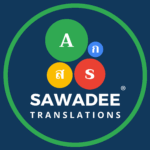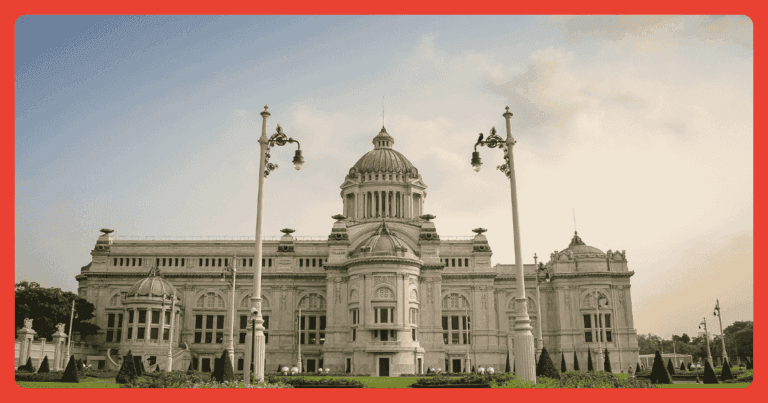
Table of Contents
Bangkok is a major diplomatic hub, home to dozens of foreign embassies and consulates serving expats, long-term residents, and travelers. If you’re a foreigner needing to get married, sign a legal document, apply for a visa, or report a birth, your embassy is your official “home base” and the starting point for almost all your paperwork.
However, embassy procedures in Thailand can be confusing, especially when documents must be translated and then validated by the Thai government. This guide covers the most common embassy services, how to secure appointments, and provides a clear roadmap for the translation and legalization process.
Common Embassy Services for Expats in Bangkok
While services vary by country, most embassies in Bangkok provide these essential functions. Note that nearly all services now require a pre-booked online appointment.
- Affidavit of Freedom to Marry: The essential first step for any foreigner wishing to get legally married in Thailand. Your embassy issues this document to confirm you are legally single and free to marry.
- Notarization of Documents: This is when an embassy official (a Consular Notary) witnesses you signing a document. This is common for Power of Attorney, property agreements, or private contracts where your identity as the signatory must be officially verified.
- Consular Letters & Verifications: These are official letters often required by Thai Immigration for visa applications. Common examples include Income Verification Letters (to prove your pension or foreign income) or Residency Confirmation Letters.
- Passport Renewals & Replacements: Handling applications for new, expired, or lost/stolen passports.
- Registering Life Events: Issuing a “Report of Birth Abroad” for a child born in Thailand or a “Report of Death Abroad” for a citizen who passes away in Thailand.
👉 Read which embassies in Bangkok require certified and legalized translations.

Need Certified or Legalized Translations for MFA or Embassy Use?
Our native translators and legalization team handle everything for you.
Get in Touch >
The Most Important Rule: The 3-Step “Chain of Authentication”
This is the most confusing part of dealing with official documents in Thailand. If your embassy issues you a document (like an affidavit) that you need to submit to a Thai government office (like an Amphur for marriage), you must follow this 3-step process:
- Step 1: The Embassy. You obtain your document (e.g., Affidavit of Freedom to Marry) from your embassy. This document is now official in the eyes of your home country.
- Step 2: Certified Translation. You take this document to a professional translator to get it fully translated into Thai. This translation must be “certified” with the translator’s official seal and signature.
- Step 3: The Thai MFA. You take BOTH the original embassy document AND its certified Thai translation to the Thai Ministry of Foreign Affairs (MFA) Legalization Division. The MFA will then place a stamp on your documents, verifying that both your embassy’s signature (from Step 1) and your translation (from Step 2) are authentic and accurate.
💡 Key Takeaway: Your embassy makes the document valid. A translator makes it understandable. The Thai MFA makes it officially accepted by the Thai government. You cannot skip any of these steps.
Booking Embassy Appointments: Tips for Success
Gone are the days of walking in. Nearly all major embassies (US, UK, Australia, European nations) operate on a strict online appointment-only system.
- Book Far in Advance: Do not wait until the last minute. Appointment slots, especially for notarial services or marriage affidavits, can be filled up for 3-4 weeks.
- Prepare Your Documents First: The online booking systems are often timed. Have all your supporting documents (passport scans, etc.) ready to upload before you start the process.
- Arrive Early, But Not Too Early: Arrive 15-20 minutes before your scheduled time. If you are late, your appointment will likely be canceled, and you will have to re-book.
- Strict Security: Remember you are entering sovereign territory. Most embassies have airport-style security. You will not be allowed to bring in large bags, laptops, or sometimes even your mobile phone. Travel light.

Notarization vs. Legalization: A Critical Difference
These two terms are often confused but mean very different things. Understanding this is key.
- NOTARIZATION (Done by your Embassy)
This service verifies your identity. A consular official (a Notary Public) watches you physically sign a document. Their stamp confirms that you are who you say you are and that you signed the document willingly. It authenticates the person.
- LEGALIZATION (Done by the Thai MFA)
This service verifies the document’s authenticity. A Thai official checks the embassy’s stamp and signature against a specimen on file. Their stamp confirms that the embassy’s seal is real and the document is legitimate for use in the Thai government system. It authenticates the document.
Frequently Asked Questions (FAQs)
Do I always need translations for embassy services?
For the appointment at your embassy? Rarely. Your embassy operates in its own native language (e.g., English, French, German). However, if you plan to use the document the embassy gives you at a Thai office (like Immigration or the District Office), you will almost certainly need to get it translated into Thai.
Can I legalize embassy documents at the MFA myself?
Yes, the process is open to the public. However, it is known for being a very time-consuming and strict “pro-level” task. It requires a full day of travel to the Chaeng Watthana complex, waiting in long queues, and having perfectly prepared paperwork. Any small error (like a missing signature on a photocopy) will result in rejection, and you’ll have to return another day. This is why most expats opt to use a service agent.
What if my document is from my home country, not the embassy in Bangkok?
This is a common issue. If you have a document from your home country (e.g., a divorce decree), it must be authenticated in your home country first before it can be used in Thailand. This is typically done via an “Apostille” or by having it legalized at the Thai Embassy in your home country. You cannot bring it directly to the Thai MFA in Bangkok.
Need Help with Embassy Documents?
The “chain of authentication” — from your embassy, to the translator, to the MFA — can be a minefield of stress and delays. Ensuring your documents are correctly processed at every stage is crucial.
👉 Sawadee Translations – Embassy & Legalization Services are experts in this exact process.
- Certified Thai Translations: We provide fast, accurate translations recognized by the MFA and all Thai government offices.
- Full MFA Legalization Service: We handle the entire submission and collection process at the MFA for you, saving you a full day of travel and queuing.
- Expert Guidance: We can advise on the specific requirements for your embassy and ensure your document packet is correct the first time.
Save yourself the time and stress. Let our team manage the bureaucracy for you.

Need Certified or Legalized Translations for MFA or Embassy Use?
Our native translators and legalization team handle everything for you.
Get in Touch >
Share this post:
This post was last updated October 2025.







